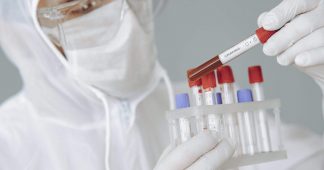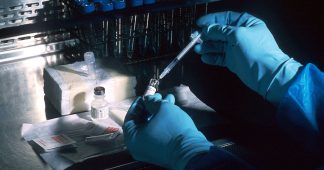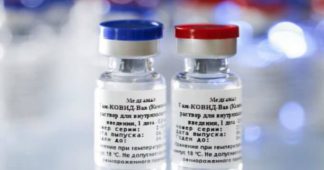How has a Covid vaccine been developed so quickly?
Analysis: Funding and high public interest contributed to slashing of research and approval time
The emergence of vaccines against Covid-19 has been hailed as gamechanger by experts, but polls have revealed the speed of their development and approval is a matter of concern for some people. We take a look at how and why such processes were so rapid.
How long does it normally take to develop a vaccine from scratch?
Traditionally it is a slow process. Speaking at the joint Commons and Lords national security strategy committee in October, Sir Patrick Vallance said that before Covid, it took an average of about 10 years to develop a completely new vaccine, with the process never before achieved in less than about five years.
How has it been possible to develop vaccines against Covid-19 in less than a year?
A key consideration is funding – public and private cash has been poured into the race for a Covid vaccine, pushing aside the usual financial concerns facing pharmaceutical companies. What’s more, demand and urgency are high.
“The fact that governments pre-bought the vaccines meant that people could take greater risks with what they did at an earlier stage without having to take one step at a time,” said Stephen Evans, professor of pharmacoepidemiology at the London School of Hygiene & Tropical Medicine.
Traditionally, vaccines are developed by weakening it or killing a virus, or by producing part of the virus in the lab. However this is time consuming.
Instead, both the Oxford University/AstraZeneca and Pfizer/BioNTech vaccines were developed using different “platform technologies” that involve slotting genetic material from the virus into a tried and tested delivery package. Once introduced into the human body this genetic material is used by the protein-making machinery in our cells to churn out the coronavirus “spike protein”, triggering an immune response.
This approach was aided by the speed at which scientists in China identified and shared the genetic sequence of the new coronavirus, and work that was already under way on other coronaviruses.
But while such platform technologies are a non-traditional approach, that does not mean they are untested.
Read more at www.theguardian.com









